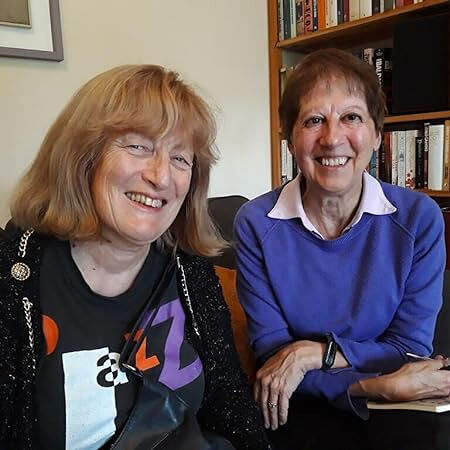War is a Character
Posted by Literary_Titan

In One Year, One Night, readers follow a woman who revisits her experiences and a romance during WWII when she returns to her hometown and happens upon her long-forgotten diary. What was the inspiration for the setup of your story?
About 10 years ago the college where Sarah was teaching was involved in a ceremony to lay a stone on the resting place of a little evacuee boy that died in a bombing at the beginning of WW2. Sarah’s curiosity was tickled by the fact that he had laid there unacknowledged for so many years and that nobody had attended his funeral. She discussed the event with Laura and they set out to research the history of this boy and the circumstances of his death.
Is there anything from your own experiences in the lives of your characters?
In a way War is a character in our writing. Both of us grew up hearing the stories of how it strongly affected the lives of our parents.
Sarah parents were 11 and 10 in 1939 and they were Londoners. Sarah’s father Ron remembered delivering newspapers and looking up to see a dogfight between a German bomber and a British pilot. The issue of food was a very strong memory and Sarah grew up in a household where the idea of a sell-by date was a genuine puzzle.
Regarding going down to the Anderson shelter during bombings, like Annie and Remy do on their first romantic tryst, the most obvious memory was that Sarah’s parents were doing exams at school – to be interrupted by an air raid.
Ron’s mother worked in a military factory at night – he and his sister were sometimes left on their own. They would tune into the American Forces Radio for company.
Families gathered round the radio can be seen in One Year One Night by SL Roman when the Corbett family listen to the news before their father goes off to war.
Laura’s experience was very different as she grew up in Rome, in the Italian capital. That experience enables her to see the British from a removed viewpoint (she married a Londoner and settled in Britain).
The similarities between the UK and Italy lay in rationing, bombs, destruction and civilian casualties.
Laura’s father was a key member of the Italian Resistance and he had been trained by the Scots Guards. His talents included skilful use of explosives to blow up Nazi railway lines.
He had several different aliases and Laura remembers him having a bounty on his head by the German military. He was awarded a distinction for his contribution to the war by Field Marshall Alexander who was commander-in-chief of the allied army including the Americans.
Both Sarah and Laura were brought up in families where money was treated carefully, influenced by a long period of austerity both in Britain and Italy. Laura said that a number of families were so poor in Italy that they went to live in caves when their homes were destroyed by the bombs.
What draws you to the genre of historical fiction?
The original boy in One Year One Night was a wartime evacuee so the genre of historical fiction was the obvious route. We are both avid readers and attend the same book club where we’ve read historical fiction and analysed it in the group. Laura also has a long-standing interest in History and believes well-researched historical fiction is an excellent teaching tool.
Sarah thought it could be a factual story but Laura argued for it to be fictionalised as we would have more leeway and fun creating the characters, underpinned by plenty of accurate historical research.
Can readers expect to see more from you soon? What are you currently working on?
Yes, we’ve written 25 pages of the second novel using the same strong character of Annie who’s moved to wartime London. We’ve had lots of discussion between us about her character and how it evolves.
We don’t want to give the whole plot away but we have two ‘lively characters’ who make for compelling reading set against a brutal time-frame when London underwent 57 continuous nights of Nazi bombing through the winter of 1940.
We’re also inserting the stories of orphaned kids in London in WW2 and how they managed to survive.
Author Links: GoodReads | Twitter | Facebook | Website | Blog
When Annie returns to her home village after a long absence, she rediscovers the diary she kept the year she turned 16, the year that changed her life. We follow Annie as she navigates a blossoming love story with a handsome soldier and her growing affection for an evacuee child. With tender and amusing moments, this story―set in a small English village during World War II―explores love, resilience, and loss with a fresh new voice.
Posted on April 3, 2024, in Interviews and tagged author, book, book recommendations, book review, book reviews, book shelf, bookblogger, books, books to read, ebook, fiction, goodreads, historical fiction, historical romance, indie author, kindle, kobo, literature, love, nook, novel, One Year One Night, read, reader, reading, romance, S.L. Roman, story, world war ii, writer, writing. Bookmark the permalink. Leave a comment.
Comment Cancel reply
This site uses Akismet to reduce spam. Learn how your comment data is processed.



Leave a comment
Comments 0